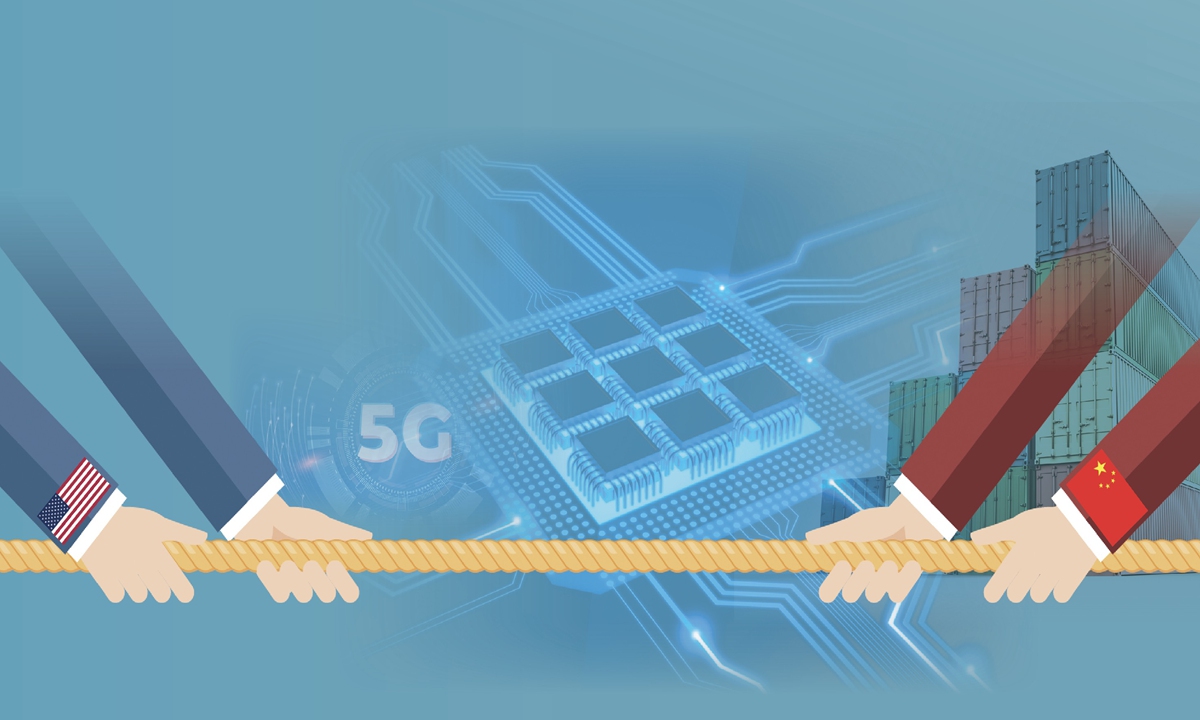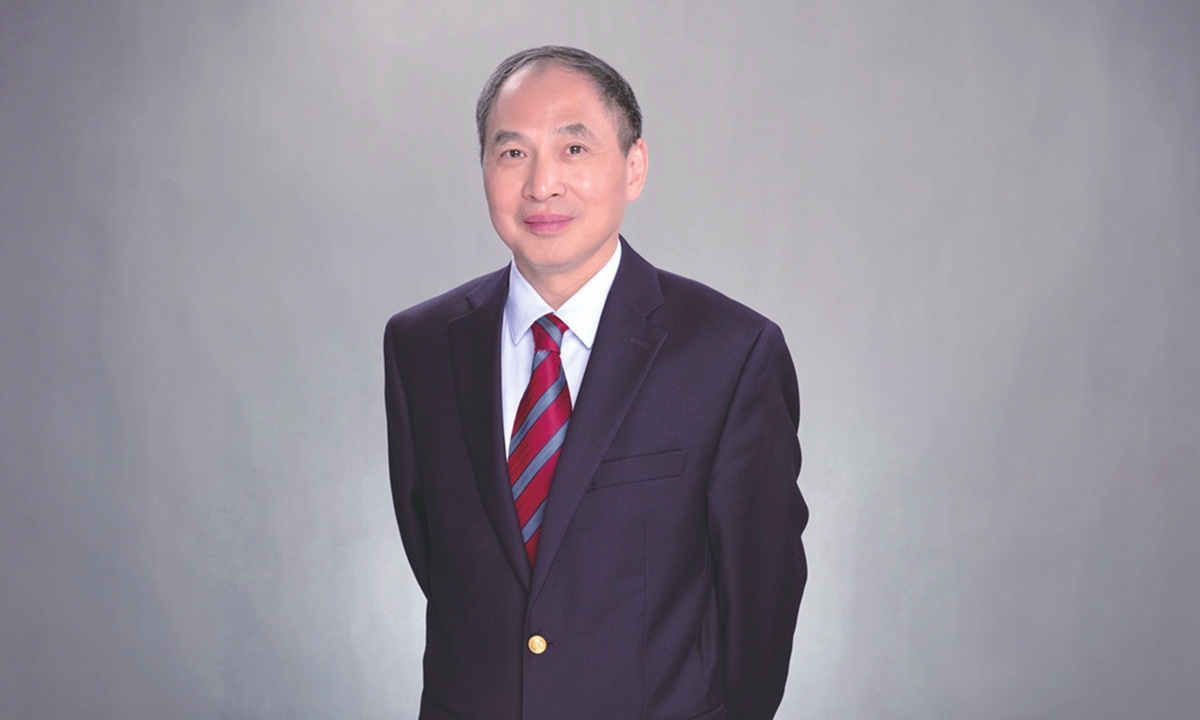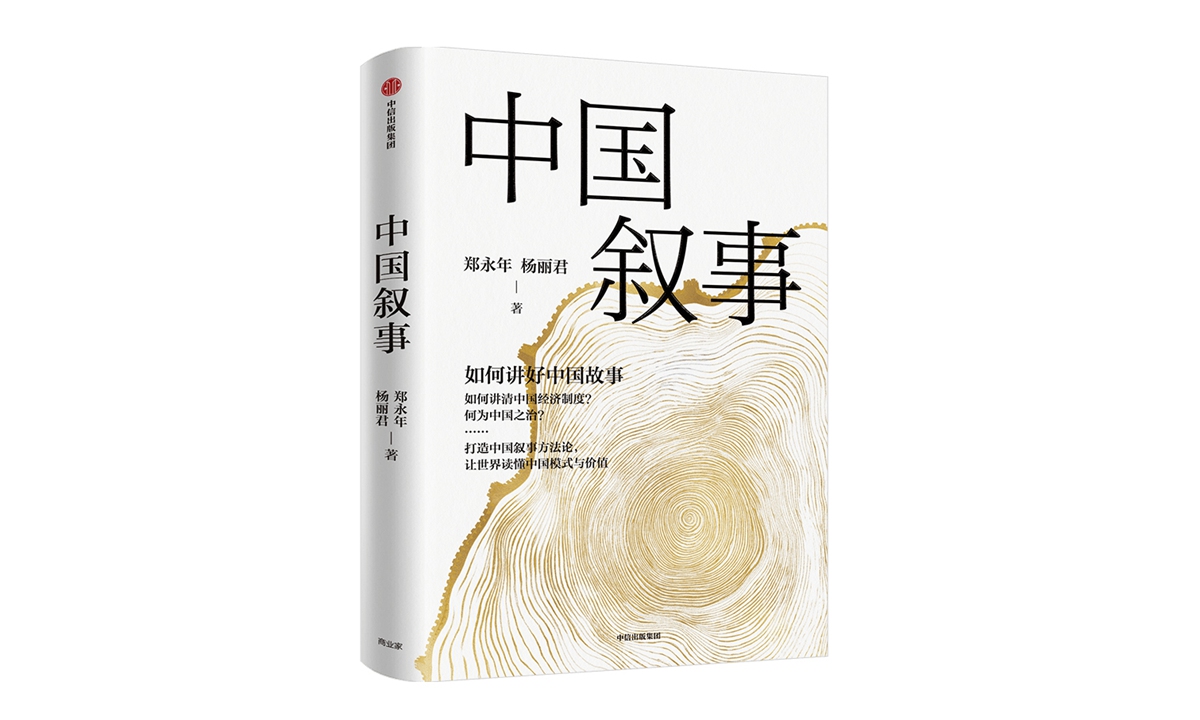China needs to be more confident and have a strong strategic focus: Chinese scholar Zheng Yongnian

Illustration: Global Times
Editor's Note:
What is China? What is it doing and where is it heading? These have become significant questions in international politics. In his new book, China Narrative: How to Tell China's Story Well, Zheng Yongnian (Zheng), president of The Institute for International Affairs, Qianhai, the Chinese University of Hong Kong, Shenzhen, chairman of Guangzhou Institute of the Greater Bay Area, shared his insights and methodology on these questions. In an exclusive interview with Global Times (GT) reporter Li Aixin, Zheng explained why he believes that a China with common prosperity will become the most powerful country in the world. He also stressed competition is good, and China needs to be more confident as a major power.
GT: In your new book, China Narrative: How to Tell China's Story Well, you write that a China with common prosperity will become the most powerful country in the world. Can you elaborate on this prediction?
Zheng: This prediction is made based on historical experience - the most powerful society is the one that best aligns with human nature. On the one hand, no one wants to be poor, and almost everyone wants to become wealthy and live a good life. On the other hand, no one likes a society that is rich on the whole but not fair in terms of distribution of wealth. In China, Confucianism emphasizes the concept of equal distribution of wealth, while in the West, there is also pursuit of common prosperity, ranging from Jean-Jacques Rousseau to Karl Marx, from utopian socialism to socialism.
Which country can achieve these two goals? Old imperialist countries like the UK and the US, which are also typical capitalist countries, are highly divided in their societies, with significant income inequality and rising populism. With such instability at home, they cannot be considered strong. A society must have basic social fairness to be strong. It does not mean absolute equality, as that is unattainable for any society.
Over the past 40 years, globalization has created immense wealth for the US, but why is American society unstable now? It is because the US, which used to be a middle-class society, has turned into a plutocracy. When a tiny minority controls the vast majority of wealth, most ordinary people surely cannot feel satisfied, happy, or secure. Only a society with common prosperity can be strong. A society that is rich but unequal is fragile, as its social foundation is not solid. This is the problem that the UK and the US are facing: They are highly developed but socially unstable.
Globalization has also had some negative impacts on income distribution in China. However, through poverty alleviation policies, especially the targeted poverty alleviation strategy, China has lifted over 800 million people out of poverty in the past 40 years. On top of that, the middle class in China is growing. When I was a student in the 1980s, I didn't even know what the concept of "middle class" meant. But now, China has 400 million middle-income earners, accounting for about 30 percent of the total population, and this proportion is still increasing.
GT: The core of the book is about helping the world to understand China. Do you think the US and some Western countries are willing to genuinely understand China?
Zheng: Another purpose of my book is to help Chinese people understand China.
All the concepts and theories of social sciences since modern times in Chinese universities and colleges are imported from the West, but they cannot fully explain China. There are no Chinese theories of China's own political science, economics, and sociology. I believe that we still rely heavily on Western political science, economics, and sociology. Science, such as physics, has no nationality, but social sciences are different.
Why does the US always pin labels on China and play identity politics? Why does the US often claim that China-US rivalry is all about autocracy vs democracy? It uses its ideology to contain other countries while adopting pragmatism when it comes to US domestic development. That's why we cannot simply adopt Western social sciences. We need to establish our own independent system of knowledge.

Zheng Yongnian Photo: Courtesy of Zheng
GT: The third Belt and Road Forum for International Cooperation has just concluded in Beijing. In your opinion, what is the most important aspect of telling the BRI story well?
Zheng: It was difficult a few years ago, but it is easier now. In the first few years after the BRI was proposed, people had no idea what it was and what was going to happen. However, after 10 years, the BRI has entered its harvest season. Recently, I took a ride on the China-Laos Railway, which links Kunming, Yunnan Province, to Vientiane, the capital of Laos. This is the first modern railway in Laos. The first modern high-speed railway in Indonesia and Southeast Asia, the Jakarta-Bandung High-Speed Railway, also opened on October 17.
The West goes on and on about the "debt trap" theory. They are hyping up microscopic issues to the level of ideology, but the reality is not like that. To begin with, problems could occur in any project, whether from China or the West. This is normal. More importantly, take the West's hype over the debt crisis in Sri Lanka. Upon closer inspection, most of the debt is from the West, not China.
It seems that when we talk about the BRI, we are talking to the West - explaining, and refuting their smears. However, it is crucial to highlight that Indonesians, Laotians, Africans, and many other local people like the BRI. This should be the focal point of the story. And we should also place extra emphasis on telling BRI stories to these countries and regions. To the West, we could emphasize that the BRI is open and inclusive, showing China's major-power mentality.
To tell China's story well, we must place China on the world map. We also need to stick to scientific principles, rationality, and the basic facts of what China has done. In the process of jointly building the Belt and Road, any data in it can be viewed as a miracle in the history of the world economy. How could we not tell it well?
GT: We have recently witnessed frequent visits of US high-level officials to China, while there is no sign of decline in US containment against China. What signal does this convey?
Zheng: The logic of the West is to pursue its own hegemony. The US, specifically, seeks to be the sole hegemon. Although this is what the US wants, Washington is becoming less and less capable of achieving it. The US wants to pool its power from NATO and the Middle East to the Asia-Pacific region to target China, as it now defines China as its top threat. However, it has to face not only the Russia-Ukraine conflict but also the Israel-Palestine conflict.
The US may be adjusting its policy toward China. However, competition between the two countries will only intensify. What Biden called as the competition between democracy and autocracy is, in fact, a competition of national interests.
The idea of decoupling was raised by the US first. Then the EU changed it into de-risking. And the US adopted the term of de-risking as well, because it knows decoupling is unrealistic.
The US used to be able to bring Japanese chips and French nuclear industries to its knees. The same approach does not work with China. China has established a relatively independent industrial system with a solid foundation, as we can see from Huawei's continuous breakthroughs. China is the world's largest semiconductor chip sales market, accounting for about one-third of global sales. When the US administration wages a chip war, not only do US chip companies suffer, but members of the US chip alliance - Taiwan island, South Korea and Japan - also suffer. When the US can no longer persist on this path, it will compromise. In terms of economic and technological competition, China should not be afraid to engage in competition.
GT: Do you think there may be new changes in China-US relations in the near future?
Zheng: China-US ties are in the new norm. When dealing with the US, we should cooperate where we can. When divergences are unavoidable, such as the Taiwan question - China's core interests, or chip technology development, tariff issues, etc., we should compete. Competition is a good thing. It can help us better ourselves. We need to change our mind-set, as a major power, we need to be more confident and have a strong strategic focus.
GT: What is your opinion on the recent conflict between Israel and Palestine?
Zheng: China can do more in the Middle East because China is truly a fair party.
Firstly, many Middle Eastern countries believe that the US and other Western countries are insincere in the Israel-Palestine issue - they take sides, standing with Israel. China, on the other hand, is a secular country which treats Islam, Christianity and Judaism equally. Secondly, China does not seek geopolitical interests in the Middle East like the US (or like the UK or the Soviet Union did). Thirdly, both Palestine and Israel are participating countries in the BRI. China thus plays a more impartial role in resolving the Israel-Palestine conflict. I believe this will be the next focus of China's diplomacy.
China will not be pressured by the US to take sides. As emphasized by Wang Yi, a member of the Political Bureau of the Communist Party of China Central Committee and China's foreign minister, on the question of Palestine, China will continue to stand on the side of peace, on the side of justice, on the side of international law, on the side of shared aspirations of the majority of countries in the world and on the side of human conscience.
I believe this is the most important aspect of China as a secular civilization. We do not take sides; we have our own values, which are peace, stability and development. These are true universal values.

China Narrative: How to Tell China's Story Well

